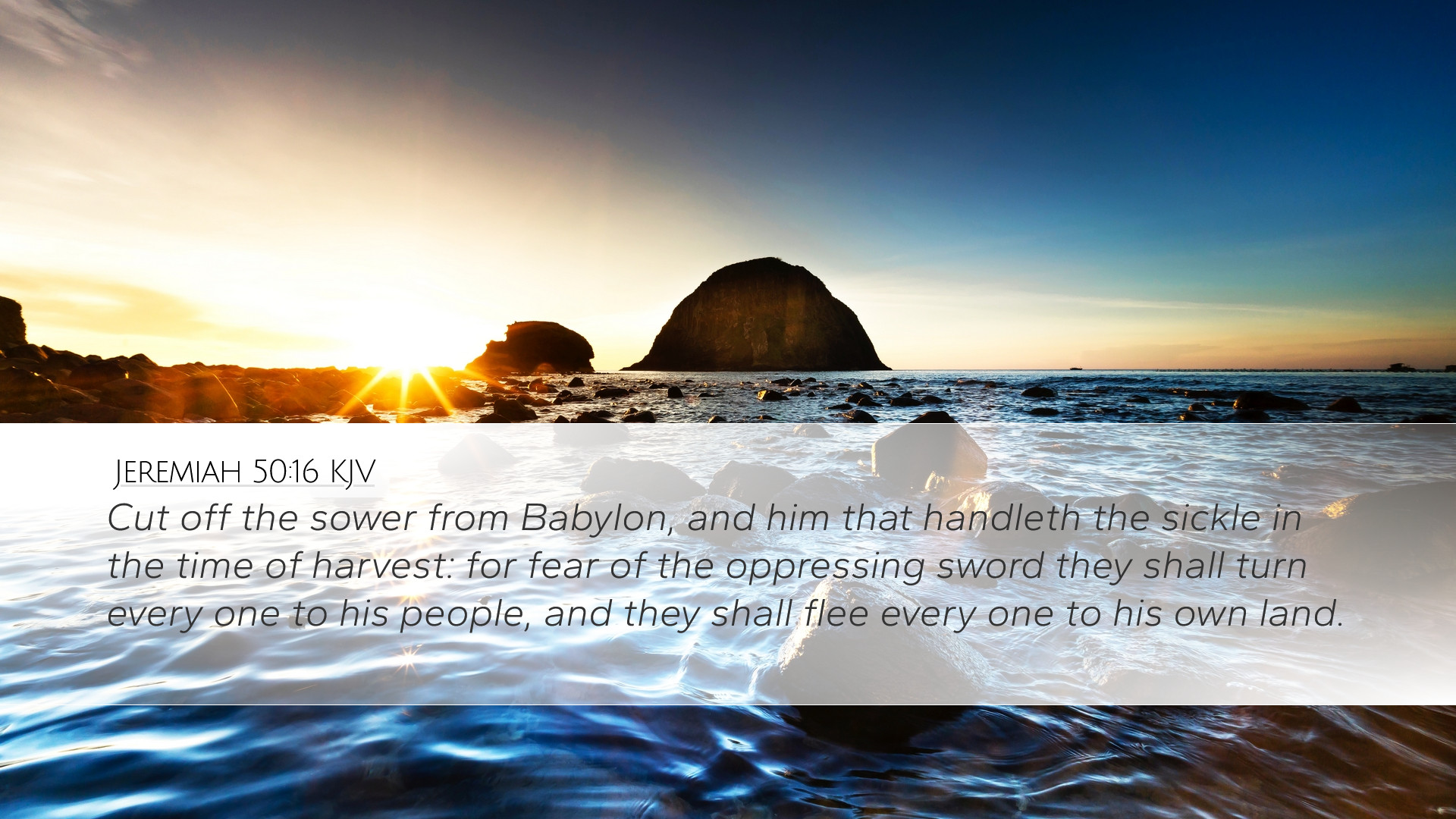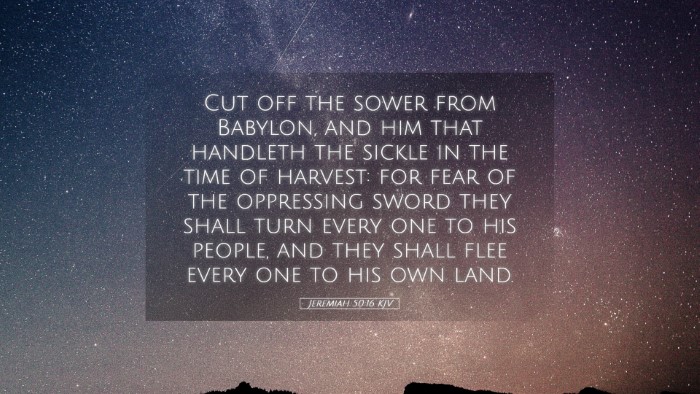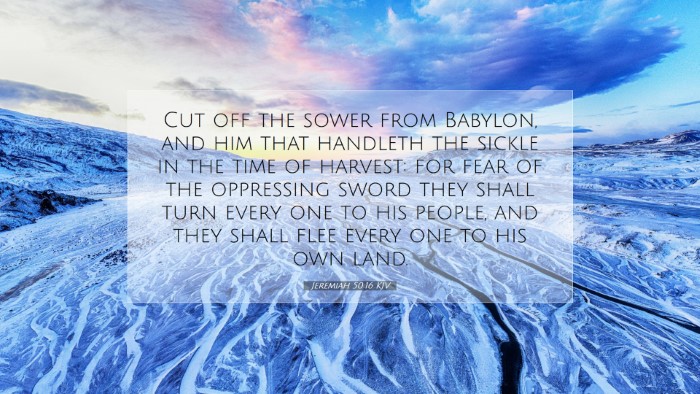Bible Commentary on Jeremiah 50:16
Jeremiah 50:16 states, "Cut off the sower from Babylon, and him that handleth the sickle in the time of harvest: for fear of the oppressing sword they shall turn every one to his people, and they shall flee every one to his own land."
Contextual Background
This verse is situated within a prophetic oracle concerning the fall of Babylon, a poetic and vivid portrayal of divine judgment against a nation that has oppressed Israel. The book of Jeremiah is known for its lamentations and warnings, delivered in a turbulent historical context when Jerusalem faced impending doom.
Commentary Insights
Matthew Henry's Commentary
Matthew Henry interprets this verse with a focus on the agricultural metaphor employed by Jeremiah. He emphasizes the significance of the "sower" and "sickle handler," indicating that the agricultural life so central to Babylonian society will come to an abrupt end as a result of imminent destruction. The cessation of agricultural activity illustrates the comprehensive nature of judgment.
- Symbolism of the Sower: The sower represents those engaged in productive endeavors, whose work will be halted as divine retribution strives to convey that no fruitful labor can endure when God’s judgment prevails.
- Fear and Flight: The fear engendered by the oppressing sword symbolizes the chaos and terror that will compel individuals to abandon their livelihoods and return to their roots, signifying a loss of stability and security.
Albert Barnes' Notes on the Bible
Albert Barnes offers a thematic exploration of Jeremiah 50:16 in the context of God’s punitive justice. He remarks that the invocation to "cut off" highlights the totality of divine judgment whereby not only the city but the very artisans of its economy—the agricultural workers—face desolation.
- Synthesis of Fear: Barnes suggests that the "fear of the oppressing sword" illustrates the profound psychological impact of the weaponry that symbolizes oppressors. This fear disrupts normal life, prompting mass dislocation as people flee for safety.
- Covenant Context: He reminds readers that the promises made to Israel highlight the importance of return, a motif underscored as the Babylonians will not only lose their power but will also face a reversal of fortune.
Adam Clarke's Commentary
Adam Clarke points out the economic dimensions of this prophecy, interpreting it as a complete destruction of Babylon's agricultural system—a foundational element of its economy. He elaborates on the social implications of such an event, where fear drives individuals to abandon their land for the sake of preservation.
- Loss of Productivity: According to Clarke, the cutting off of sower and harvester signifies that in the face of divine judgment, the fruit of man's labor is rendered futile, emphasizing vulnerability to divine sovereignty over historical events.
- Calls for Reflection: Clarke invites readers to reflect upon the transient nature of human endeavors in contrast to divine promise, seeing in the flight of the agricultural worker a call for both repentance and acknowledgment of God’s authority.
Theological Implications
Analyzing Jeremiah 50:16 reveals significant theological truths relevant for pastors, students, and scholars:
- The Sovereignty of God: This verse asserts God’s sovereignty over nations and individuals, illustrating how divine judgment can disrupt even the most foundational aspects of life, such as economy and community.
- Human Response to Crisis: The flight of individuals in fear serves as a reminder of the human instinct to seek safety amid threats. It reflects the ultimate human need for divine protection and guidance.
- Covenantal Themes: Understanding the historical context encourages readers to appreciate the continual interplay between judgment and mercy as framed by God’s covenant with Israel, and how this extends into Christian eschatological themes.
Conclusion
Jeremiah 50:16 serves as a poignant reminder of the consequences of rebellion against God. In combining insights from Matthew Henry, Albert Barnes, and Adam Clarke, we glean a rich tapestry of meaning that applies to both the historical context of ancient Babylon and the contemporary believer's understanding of God's justice, mercy, and sovereignty.


